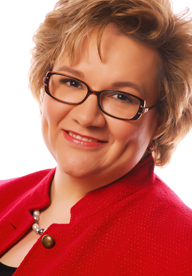How will a small business know they need a business consultant?

Q&A with Lea Strickland
Lea Strickland shares her experiences and views on how small businesses can get the most from experts around them.
Lea Strickland, MBA/CMA/CFM/CBM/GMC, is President/CEO of F.O.C.U.S. Resources in Cary, N.C., and founder of the Technovation Entrepreneur program, helping entrepreneurs turn their ideas into businesses by effectively commercializing scientific discoveries.
Lea is an internationally renowned business strategy expert applying proven infrastructure management solutions to help businesses and organizations of all sizes build a baseline for success. She has more than 20 years of experience in operational leadership in Fortune 500 and Global 100 companies, including Ford, Solectron and Newell Corporation, regularly sharing her extensive first-hand knowledge via interactive sessions and keynote presentations at a wide range of industry events. Lea leads workshops and webinars on business strategy topics and is one of the most prolific women entrepreneurs on the business speaking circuit. For more, please visit www.focusresourcesinc.com
Q: As a fully functional business consultant you are sought after by small, medium, and large clients. What would you like small businesses to know about the value of investing in hiring a business consultant?
A: Typically people think of “business consultant” as a general category that includes the CPA who advises businesses to the marketing firms that advise on marketing strategy. In fact, business consulting that encompasses the full spectrum of what a business or organization is and does – how it is structured, who is on the team, the processes, systems, and so on – is a very specialized practice. Having a CPA that understands business is great. Having a marketing firm that is business savvy is critical. Finding a business consultant that can look across the accounting, marketing, strategy, human resources, compliance, finance and all the functional activities is mandatory.
A business consultant like me works with a client to get the entire picture. Think of it as a jigsaw puzzle or a mosaic – lots of pieces that have to come together just right to form the image, the picture. Each piece is a critical detail that impacts how the organization functions and becomes profitable. For small businesses the ability to get that picture together quickly, cost effectively and make an impact now can be the make or break of the business.
Q: How will a small business know they need a business consultant (vs. advice or board level oversight)?
A: The best way I can answer this is to share the story of a new small business that I just started working with. The business is a single person LLC with the owner (Sam) as the only “employee”. The business is almost seven years old and is expanding beyond what one person can do. But it has not and is not generating the revenues and profits to be sustainable. Sam has been working with a website developer, an SEO consultant, printer, CPA, lawyer, lead generators, and several other “advisors and consultants”. So a full range of specialists doing their thing.
Sam has been spending significant dollars every month with these advisors. The business is spiraling down under the financial and time demands placed on Sam by the advisors. Every advisor is waiting for Sam to tell them what to do. The problem is Sam doesn’t know what needs to be done or how to make everything come together.
Our first session involved listening to Sam’s vision and defining goals. We also assessed the issues and challenges of how the business was currently operating. After that meeting, I created an overview of how the business should be structured to meet those goals and identified the steps to be taken to get control of the expenses, get relevant timely information, and immediately redirect the other advisors to be productive.
We now have a clear set of goals, an outline of how the business is going to grow, and new tasks and responsibilities for each of his other advisors. The money Sam spends on advisors including me is now an investment in a focused and productive operation. Most important is that Sam in two weeks has gone from expecting to close his business to making plans on how to hire workers and grow the business.
Q: What are the key ingredients for both the consultant and the business owner to work together well?
A: The business owner has to be willing to share all the information on what he/she wants the business to be and what is going on in the business currently. To transform a business into a growth machine, the owner has to be willing to share the good, the bad, and the uncomfortable.
The consultant has to have the ability to hear what the business owner is saying, diagnose the problem by looking at the symptoms – the current financial results, the marketing and strategic direction, the team dynamics – and be able to lay the cards on the table for the owner to see and understand the underlying factors contributing to or detracting from results.
There are essentially the characteristics of a great owner/consultant relationship:
– Trust and honesty in communication
– Technical competency (consultant’s background experience, education, and credentials
– Willingness to learn and change
Consultants need to immediately connect with the client and demonstrate that you can help them achieve their goals. Building complete trust and honesty takes time. At first the initial level of communication (trust) is based on the technical competency of the consultant. The critical skill set is relational – the consultant needs to be able to listen – hear the client, understand the clients perspective, and begin laying a foundation to guide the client into changes in behaviors, processes, and perspective that will transform the organization.
Most organizations whether they are small businesses or major global corporations succeed or fail on the basis of the people in the organization being able to change. If you want to grow your business, you will need to change your processes and infrastructure to support that growth.
Change is ultimately about: People | Processes | “Product” – what you sell | Performance.
When you have a consultant that can work with your organization on these three dimensions across the functional activities and the “product” then your business can grow in the direction that you the owner want it to go.
A great business consultant will:
1. Identify what changes need to happen
2. Guide in the redesign of the organization
3. Advise on how to make the changes
4. Hold you and your team accountable to change
5. Measure performance and results
6. Tell you the truth about the issues and the progress
7. Fill in the gaps – provide technical support that your team doesn’t have while you develop skills.
A business consultant can be a source of technical expertise, develop your team skill set, provide board and executive level guidance, and do the roll-up your sleeves execution needed – be the added muscle to get change to happen.
When hiring a business consultant, Lea tells us you need to look at:
Experience – how long have they been working in the business arena
Expertise – technical skill sets (for instance I hold degrees in finance, management, accounting, marketing and human resources as well as certifications in Management Accounting, Financial Management, Business Management and Grants Management)
Communication skills – does the consultant have materials such as articles, books, etc. that you can read to understand what the consultant knows and does
Business presence – is the consultant still using free email services (gmail, etc.) or have they invested in their own business – domain e-mail and website
Recommendations – who are their clients and how happy are those clients
A great consultant puts the client first. Gets the big picture of what the client envisions and then guides the client to make that vision happen.
Thanks Lea — great advice!


1 Comment
cyn
May 17, 2013Ha! Two of my favorite Lea’s,… together they are a power-house of information.Thanks for sharing. Lea – I especially like the case study explanation, it really helps when the reader can identify with the content. Cheers!